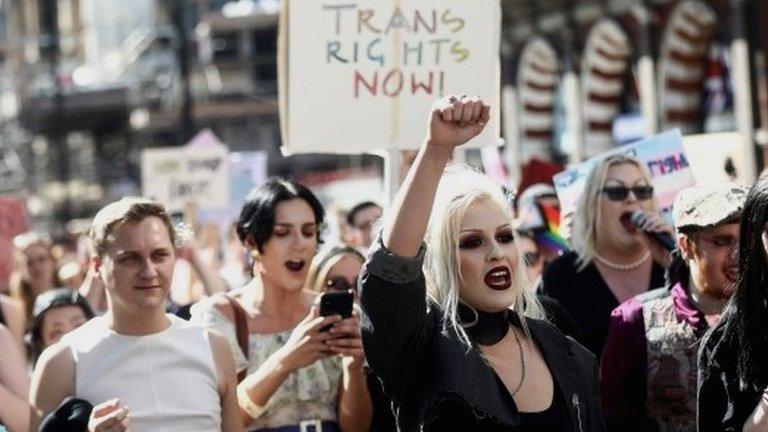Puberty blockers: Parents' warning as ruling challenged
- Published
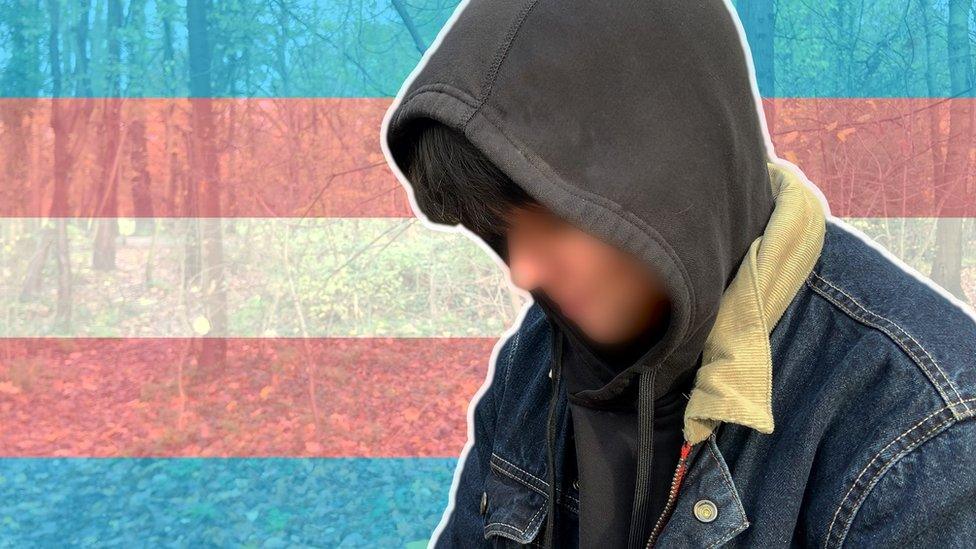
Theo, a trans boy, tried to take his life last year while waiting for an NHS referral
The NHS gender identity service is seeking leave to appeal against a High Court ruling that restricts children under 16 from accessing "puberty-blocking" drugs.
The NHS service says the move harms young people with gender dysphoria.
Gender dysphoria is when a mismatch between a person's sex assigned at birth and their gender identity causes them distress.
Accessing puberty blockers is currently one of the first steps in treatment for young people wishing to transition.
Earlier this month, three High Court judges ruled that children under 16 with gender dysphoria are "unlikely to be able to give informed consent to undergo treatment with puberty-blocking drugs".
Dame Victoria Sharp, sitting with Lord Justice Lewis and Mrs Justice Lieven, said: "It is highly unlikely that a child aged 13 or under would be competent to give consent to the administration of puberty blockers.
"It is doubtful that a child aged 14 or 15 could understand and weigh the long-term risks and consequences of the administration of puberty blockers," she added.
As a result, trans children under the age of 16 will now need a clinician to apply to the High Court to be able to access puberty blockers, and all current referrals and appointments have been paused.
The BBC understands that clinicians may also seek guidance from the High Court for all trans young people under 18.
The Tavistock and Portman NHS Trust, which runs England and Wales' only children's gender identity service, is now seeking leave to appeal the High Court decision, along with University College Hospitals NHS Foundation Trust and Leeds Teaching Hospital NHS Trust.
Some trans young people have been giving their reaction to the ruling, with one calling it "honestly terrifying".
Theo, a 14-year-old trans boy who suffers from extreme gender dysphoria, came out as trans when he was 11. He is still waiting to see a gender specialist, and last year he tried to take his own life.
He wanted to "disappear", he said, after being left to go through female puberty while stuck on a "never-ending" NHS waiting list.
"I felt like I wanted to be dead rather than waiting. I spend a lot of time wishing I could be a normal boy and there is no help for me.
"I have support around me, but my gender dysphoria feels like I'm not me in my own body," he says.
"It can make me really depressed. I hate seeing my body, so I can barely have a shower or a bath."
Theo's mum, Loreto, says that even when Theo was lying in intensive care "connected to pumps and with tubes through his nose", she could not secure him any gender identity support from the NHS.
"I still have a child who can't go outside. I have to constantly check how he's dealing with life, and tell him to focus on the positives."
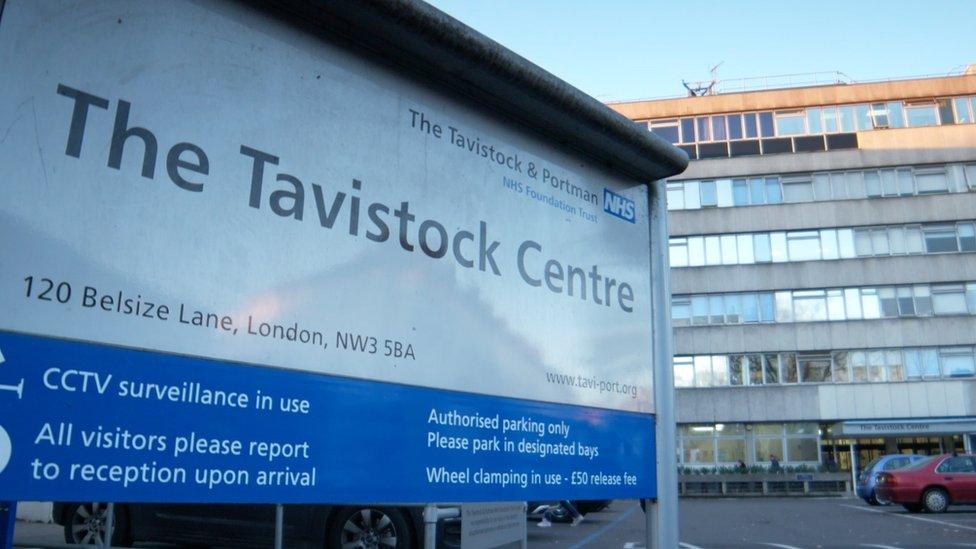
The NHS Gender Identity Development Service is based at the Tavistock and Portman Trust
Dr Adrian Harrop, a GP from Liverpool who has defended the right of children to begin transitioning, says trans young people have now had "the rug pulled from underneath them".
"It makes me terribly worried that there is now nothing there for those children, and nothing that can be done to help them.
But one claimant in the High Court case, the mother of a 15-year-old girl who is awaiting treatment, said before the outcome that "It is distressing to have to wait and to try and convince someone that your identity warrants medical intervention.
"However, I think the downside of getting it wrong, the outcomes of getting it wrong, are also catastrophic."
The NHS Gender Identity Development Service (GIDS) website states: "This judgment and the revised NHS England service specifications for GIDS raise a lot of questions and may be the cause of anxiety and distress for our patients and their families/guardians.
"We also appreciate that this comes at a time when our waiting times have never been longer, and amidst a pandemic."
While the NHS gender identity service says that access to any medication will not be "automatically withdrawn" as a result of the ruling, they confirmed that no new referrals are being accepted.
A spokesperson for the NHS Trusts involved told the BBC this is a "temporary pause".
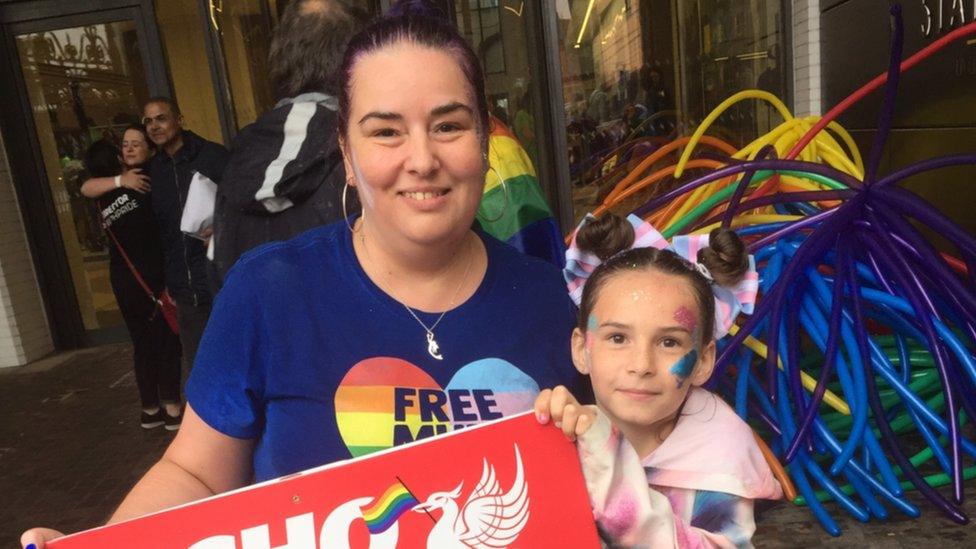
Emma (left) supports her trans daughter Emily (right) at LGBT Pride events
Emily, a 12-year-old trans girl from Liverpool, was first referred to the Tavistock by her GP in May 2017.
After being assessed over 12 appointments, across two years, involving Emily and her parents, she had just been recommended for puberty blockers by the service.
Emily's mother, Emma, fears her daughter "will not make it through" male puberty. "Emily is running out of time. We will have to figure something out, and fast," she says.
"She's already so uncomfortable in the body she's got, and if it becomes more male, she won't be able to tolerate it."
In October 2020, Emily's NHS psychotherapist wrote: "I am satisfied that Emily, with the ongoing support and guidance of her parents, has a good understanding about the potential side-effects of this treatment."
But Keira Bell, who at 20 had a double mastectomy, has begun de-transitioning and now reflects "It was heartbreaking to realise I'd gone down the wrong path."
Clarification and update 23 December: We have made some changes to this article which include amending its opening line to make clear that the NHS gender identity service has not appealed against the High Court ruling but is seeking leave to do so. We have also added a paragraph which provides further background information on GenderGP and included links to the BBC Action Line.
Correction 8th July 2021: This article has been amended following a complaint to the BBC's Executive Complaints Unit.

If you are in the UK, you can call the Samaritans, external on 116123
For information and support on mental health and suicide, you can access the BBC Action Line

Follow Ben Hunte on Twitter, external and Instagram, external
- Published12 October 2021
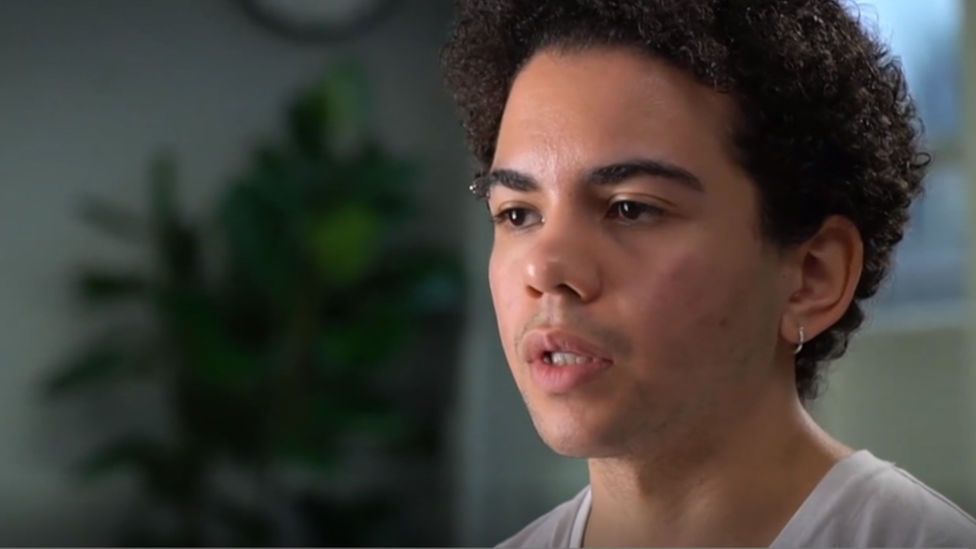
- Published1 December 2020
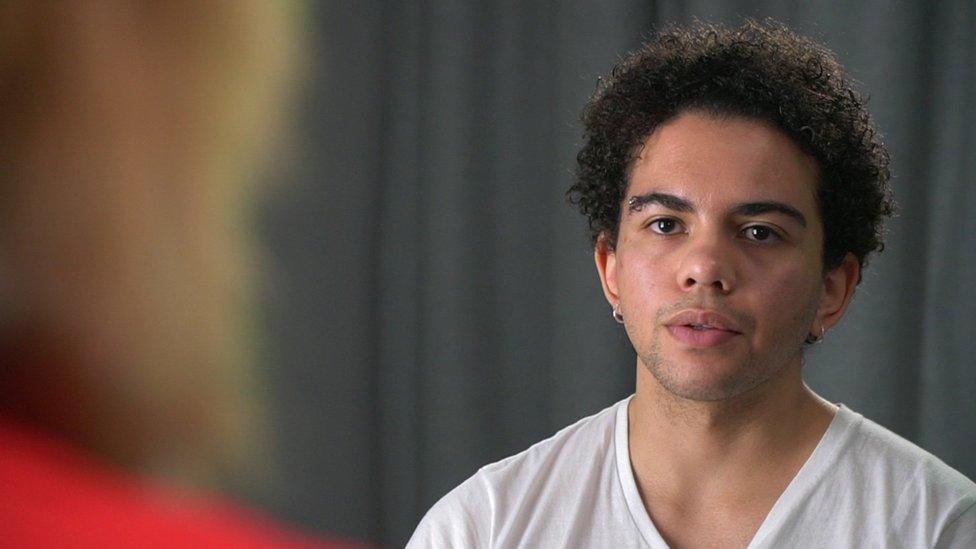
- Published23 November 2020
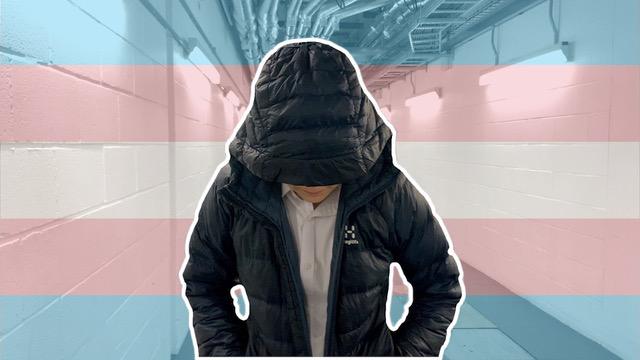
- Published20 June 2020
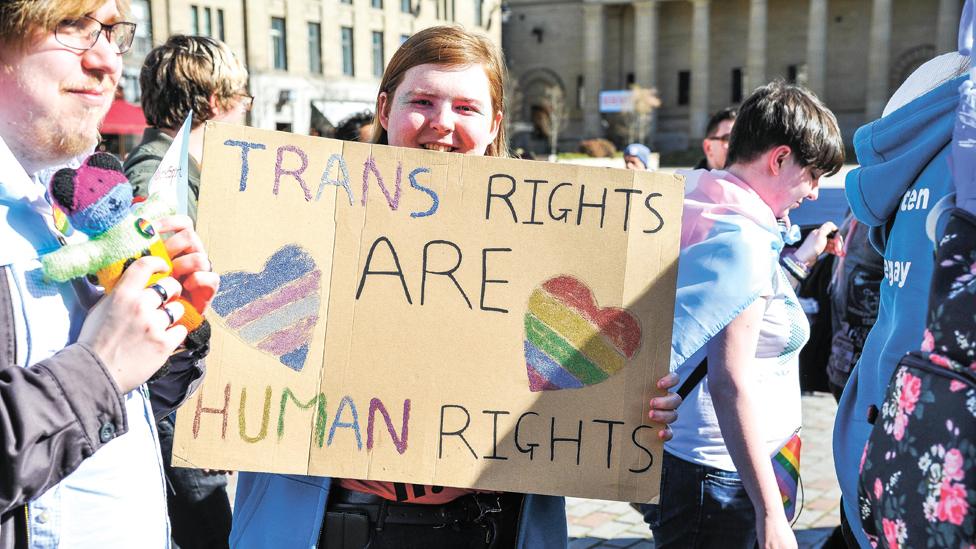
- Published11 October 2020
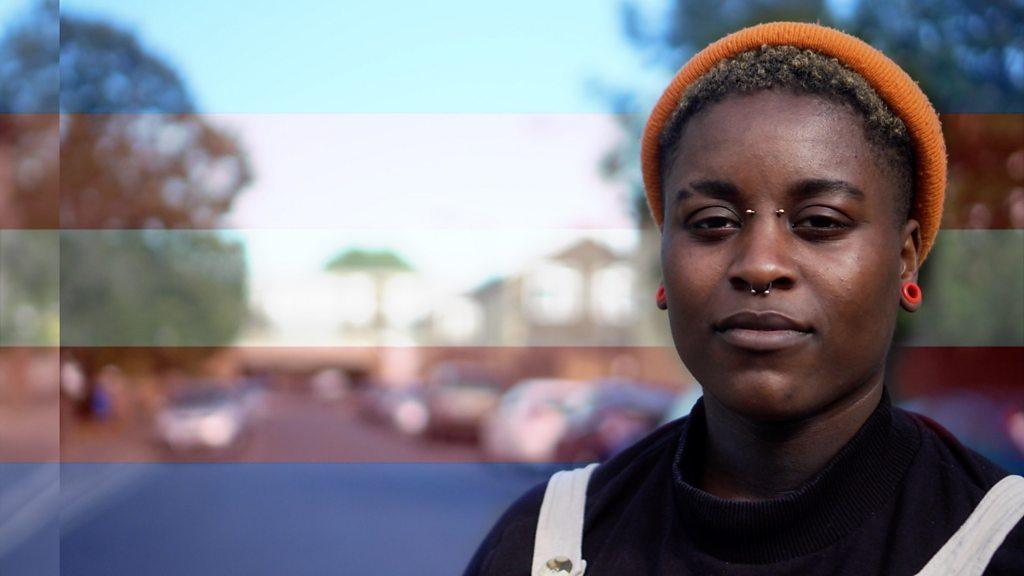
- Published25 October 2019
